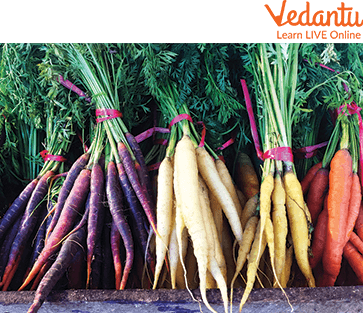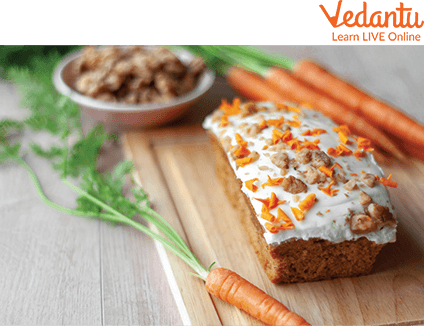




Why Are Carrots Important in Our Daily Diet and Meals?
Carrots are the ultimate superfood. Carrots are essentially root vegetables like radish and onions. They’re packed full of vitamin A, which is great for your eyes and skin, as well as vitamin C and K. So what are carrots good for? Well, they’re high in fibre, which is great for digestion, and they have plenty of antioxidants and nutrients that fight disease and promote healthy skin. They’re also cheap, widely available (in the winter at least), and quite easy to store if you have a surplus from your garden or allotment. But how can you get even more benefits from this humble root? Here are some ideas…
Make the Most out of Vitamin A
A vital nutrient for healthy health is the fat-soluble vitamin A. It plays an important role in the immune system, tissue growth and repair, and vision. The richest sources of vitamin A are found in organ meats and dairy products, but there are plenty of healthy veggies that contain vitamin A as well.
Few Lines on Carrot for Kindergarten
A few lines on carrot for kindergarten ar following:
Carrots are a top source of vitamin A, and one large carrot contains around 24,000 IU (international units) of vitamin A, which is well over a day’s worth.
It can help prevent age-related macular degeneration (AMD), the main factor that causes blindness in adults over 50.
It is good for our eyes.

A Bunch of Carrots
Stabilise your Blood Sugar
Carrots are rich in dietary fibre, which helps to reduce blood sugar and cholesterol. The soluble fibre in carrots also helps to lower cholesterol and is good for digestion. Carrots also contain a lot of minerals, such as potassium and manganese, which help to balance blood sugar and insulin levels.
Help with Weight Loss
Carrots are rich in beta-carotene, which is converted to vitamin A inside the body. Vitamin A is required for the proper functioning of the immune system and the organ systems in the body. Carrots are also a great source of dietary fibre, which helps to reduce cholesterol and stabilise blood sugar.
Protect Your Eyes
Carrots are packed with vitamin A, which is essential for good eye health and not only do carrots help prevent macular degeneration, but they also protect against age-related vision loss across the board.
Other Benefits
Carrots are great for skin, hair, and nails, thanks to their high levels of vitamins A, C and K. They’re also a good source of dietary fibre and potassium, and are low in calories. Carrots contain a range of minerals and vitamins, including iron and vitamin C, which are powerful antioxidants that help to prevent free radical damage to the skin and may prevent acne and premature ageing. Carrot seeds have been shown to reduce cholesterol and act as an anti-inflammatory agent. And finally, carrots are a good source of B vitamins and vitamin K, which are essential for blood clotting and the health of bones and the nervous system.
How to Eat More Carrots
If you want the benefits of carrots, you need to eat more of them! The average person only eats around 3 or 4 carrots a week, which is nowhere near enough. Try adding carrots to your breakfast by slicing them up and making them into a smoothie, or try a savoury carrot and oat muffin. Carrots are also a great addition to salads and soups, and they make a great snack when paired with other crunchy, healthy foods, such as seeds.
Carrot Facts
Carrots are very nutritious and contain 19 minerals and vitamins:
Iron – 88% of the daily recommended amount. Improves oxygen flow and transports nutrients to different organs in the body.
Vitamin B6 – 13% of the daily recommended amount. Helps the body process proteins and is essential for the functioning of the nervous system.
Vitamin C – 10% of the daily recommended amount. Assists in the development of collagen and is an important antioxidant that protects the body from diseases and slows down the ageing process.
Potassium – 8% of the daily recommended amount. An important electrolyte mineral that maintains normal blood pressure.
Vitamin A – 6% of the daily recommended amount. Carrots are one of the best-known sources of vitamin A, which is crucial for the normal development of the eyes.
Copper – 4% of the daily recommended amount. Helps the body to produce collagen, blood vessels, and iron and to metabolise energy from food.

Carrots of Different Varieties and Colours
The Best Ways to Eat Carrots
Carrots can be eaten raw or cooked, and you can use them in plenty of different dishes and snacks:
Soups and stews, Carrots are often used in savoury dishes, especially in the winter.
Carrot bread, Try adding finely chopped carrots to your next loaf, or try a carrot and oat muffin.
Carrot cake, Who knew you could put carrots in a cake? Yum!
Carrot noodles, Try them as a healthy alternative to regular pasta.
Pesto, Add carrots to your favourite pesto recipe for a creamy, extra flavour.
Roasted carrots, Roasted carrots are delicious and a great alternative to chips.
Carrot hummus, Spread this on your next sandwich or wrap or try it as a dip.
Carrot and peanut butter sandwiches, A sweet and savoury treat!

Healthy and Delicious Carrot Cake
Conclusion
This article is about carrots for kids. Carrots are one of the most nutrient-rich vegetables out there, and they're also super affordable, easy to grow, and easy to use in a wide variety of dishes. If you want to get the most out of these orange veggies, be sure to eat plenty of them, and try out some of our tasty recipes to get started. They're deliciously roasted, steamed, or blended up into a smoothie, and they're perfect for autumnal dishes, winter comfort food, and even for Halloween!
FAQs on Essay on Carrot: Benefits, Nutrition, and Uses for Students
1. What are the primary nutritional benefits of carrots for a student?
Carrots are packed with essential nutrients vital for a student's growth and health. Their main benefits come from:
- Vitamin A: Crucial for good vision, a strong immune system, and healthy skin. Carrots are rich in beta-carotene, which the body converts into vitamin A.
- Fibre: Aids in digestion and helps maintain a healthy weight by making you feel full.
- Antioxidants: Protect the body's cells from damage.
- Potassium: Helps regulate blood pressure and is important for muscle function.
2. How do carrots specifically help in improving and maintaining good eyesight?
Carrots support eye health primarily through their high concentration of beta-carotene. When you eat carrots, your body converts beta-carotene into vitamin A. This vitamin is a critical component of a protein called 'rhodopsin,' which is found in the retina of your eyes. Rhodopsin helps you see in low-light conditions and protects the cornea. A sufficient intake of vitamin A can help prevent conditions like night blindness.
3. Are all carrots orange? What are the different types of carrots available?
While orange carrots are the most common, they come in a variety of other colours. Originally, carrots were purple or yellow. Today, you can find purple, red, yellow, white, and orange carrots. Each colour indicates the presence of different antioxidants. For example, orange carrots are high in beta-carotene, red carrots contain lycopene (also found in tomatoes), and purple carrots are rich in anthocyanins.
4. What is the best way to include carrots in a student's daily diet?
Carrots are very versatile and can be easily added to a student's diet in many fun and tasty ways. You can eat them raw as a crunchy snack, grate them into salads or sandwiches, or add them to soups and stews. They can also be steamed, roasted, or blended into smoothies. For a healthy lunchbox option, carrot sticks paired with hummus is an excellent choice.
5. Why are carrots classified as a 'root vegetable'?
Carrots are classified as a root vegetable because the part we eat is the main taproot of the plant. This root grows underground and its primary function is to anchor the plant and absorb water and nutrients from the soil. Because it's a storage organ for the plant, it becomes packed with energy and nutrients like sugars and vitamins, which is why it is so nutritious for us to eat.
6. Does cooking carrots reduce their nutritional value compared to eating them raw?
Cooking carrots can change their nutritional profile, but it doesn't necessarily make them less healthy. While some heat-sensitive vitamins like vitamin C might decrease slightly, the cooking process actually helps break down the tough cellular walls of the carrot. This makes the beta-carotene more available for your body to absorb. Therefore, both raw and lightly cooked carrots (like steamed or roasted) offer great health benefits. Overcooking, however, can lead to a greater loss of nutrients.
7. Can eating too many carrots really change your skin colour?
Yes, eating an excessive amount of carrots can lead to a condition called carotenemia, where the skin takes on a yellowish or orange tint. This happens because of the high levels of beta-carotene in the blood. The condition is harmless and temporary, and the skin colour returns to normal once you reduce your intake of carotene-rich foods. It serves as a good reminder that a balanced diet is always important.
8. Besides eating them, what are some other interesting uses of carrots?
Beyond being a popular food, carrots have a few other interesting uses. In some cultures, carrot juice is used as a natural dye for fabrics and food colouring. Carrot seed oil is used in cosmetics and skincare products for its antioxidant properties. Historically, carrots have also been used in traditional medicine and even as a source of sugar before sugar beets and sugarcane became widespread.





















